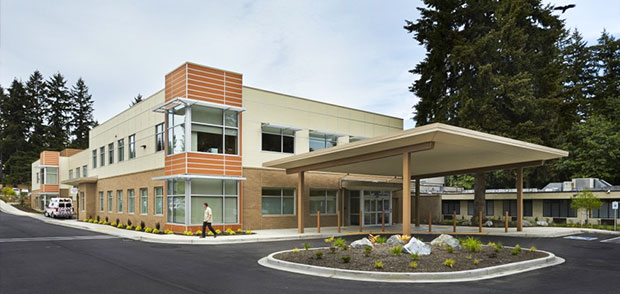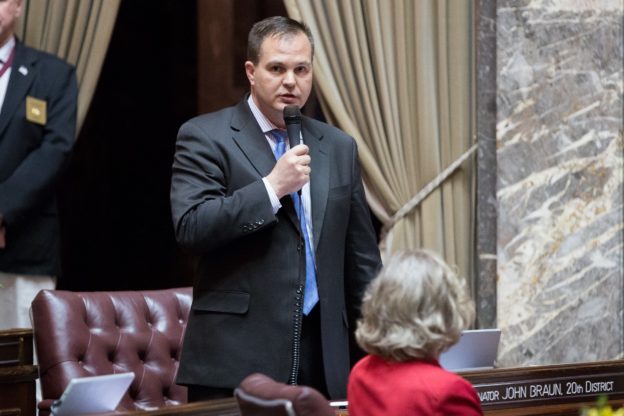Legislation sponsored by Sen. John Braun and Sen. David Frockt asks voters to approve $500 million in state bonds to greatly expand community mental health treatment facilities statewide. This comes as reports and analysis show Washington’s inadequate options for people facing a variety of mental health crises.
“Treating people with mental illness in their community keeps them closer to their family and improves long-term outcomes,” said Braun, R-Centralia, who serves as ranking minority member of the Senate Ways and Means Committee. “It’s critical that we provide the facilities to deliver a variety of evidence-based services throughout our state. Combining one of the lowest national rates of available treatment facilities with some of the highest need is a recipe for the crisis we see today.”
Washington has taken steps to invest in community treatment facilities over the last four years to the tune of an additional $50 million in the previous two capital budgets.
“We have a crisis in mental health in this state. We are under court order to improve the system in a variety of ways, and this includes expanding the entire range of facilities,” said Frockt, D-Seattle. “This bill would create a transformational funding plan over many years to address these dire needs. This measure ensures that people suffering from mental illness can be treated close to home, keeping them connected to the support systems that they’ll rely on as they recover.”
A 2015 report by the Washington State Institute for Public Policy showed that Washington ranked 49th of 50 states for the availability of psychiatric beds. The same report also highlighted that the state ranks in the top three nationally in adult prevalence of mental illness and serious mental illness.
“While we’ve made progress in recent years, it’s clear that the scale of problems demands a more widespread and flexible approach,” said Braun, who sponsored the 2017 state operating budget, which also made significant investments in mental health treatment and care.
The proposed legislation authorizes up to $500 million in general obligation state bonds to pay for capital improvements that increase behavioral health services in community settings. Funds could be used for a variety of treatment options including evaluation and treatment centers, crisis and stabilization centers, detoxification centers, transitional housing or other appropriate options.
With the bonds, the Legislature would be able to appropriate the money raised from the “Community Behavioral Health Bond Account,” a dedicated fund created in the bill. The specific capacity that could be expanded would depend on what types of facilities future Legislatures choose to invest in as well as the amount of matching or grant funds available for individual projects.
“I am looking forward to working with Sen. Braun and the bipartisan group that is sponsoring this measure,” Frockt said. “As the new Democratic chair of the capital budget, I plan to schedule hearings for this bill once we have passed a capital budget. Addressing this crisis is one of my top priorities. Good ideas know no party, and it’s time for both parties to come together to address these long neglected needs.”
The measure would be subject to a vote in the state’s 2018 general election.












